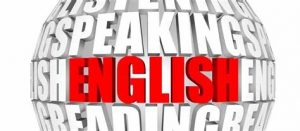
A slab leak can be a homeowner’s nightmare, especially in a city like San Diego where the weather can exacerbate plumbing issues. Detecting and repairing a slab leak promptly is crucial to prevent water damage, structural issues, and mold growth. In this guide, we’ll walk you through the steps to identify, diagnose, and repair a slab leak in San Diego.
What is a Slab Leak?
A slab leak refers to a leak in the water lines that run beneath the concrete slab foundation of a building. These leaks can occur in both residential and commercial properties and are typically caused by factors such as corrosion, poor installation, or shifting soil.
Signs of a Slab Leak
Detecting a slab leak early can save you time, money, and extensive damage. Look out for these signs:
- Increased Water Bills: A sudden spike in your water bill without a corresponding increase in usage can indicate a leak.
- Water Pooling: If you notice water pooling or damp areas on your floors, particularly in areas near the foundation, it could be a sign of a slab leak.
- Low Water Pressure: Decreased water pressure in your faucets or showers may be a result of a leak in the water lines.
- Mold or Mildew: Excessive moisture from a slab leak can lead to mold or mildew growth, especially in areas with poor ventilation.
- Cracks in Walls or Floors: As the foundation shifts due to a slab leak, you may notice cracks forming in your walls or floors.
Step 1: Detection
To pinpoint the location of the slab leak, consider these methods:
- Visual Inspection: Look for signs such as damp spots, mold growth, or cracks in the foundation.
- Water Meter Check: Turn off all water sources and monitor your water meter. A movement in the meter when no water is being used indicates a leak.
- Pressure Test: A plumber can perform a pressure test to assess the integrity of your plumbing system and identify leaks.
- Electronic Leak Detection: Advanced tools such as electronic leak detection equipment can accurately locate leaks without invasive methods.
Step 2: Repair
Once the slab leak is identified, it’s crucial to proceed with repairs promptly. The repair process may involve the following steps:
- Accessing the Leak: In some cases, accessing the leak may require breaking through the concrete slab. This is typically done strategically to minimize damage.
- Repairing or Replacing Pipes: The damaged section of the pipe will need to be repaired or replaced. Depending on the extent of the damage, options include epoxy pipe coating, pipe rerouting, or traditional pipe replacement.
- Recovering the Slab: After the repairs are complete, the concrete slab is restored. This may involve pouring new concrete and allowing it to cure properly.
- Post-Repair Inspection: A thorough inspection ensures that the repair was successful and that there are no additional leaks or issues.
Step 3: Prevention
To prevent future slab leaks, consider these preventive measures:
- Regular Inspections: Schedule regular plumbing inspections to catch potential issues early.
- Proper Installation: Ensure that pipes are installed correctly and are not susceptible to corrosion or damage.
- Maintain Healthy Soil Conditions: Properly manage soil moisture levels around your property to prevent soil shifting that can damage pipes.
- Address Foundation Issues: Address any foundation issues promptly to prevent stress on your plumbing system.
- Consider Pipe Coatings: Epoxy pipe coatings can provide an additional layer of protection against corrosion and leaks.
Choosing a Professional
When dealing with a slab leak, it’s essential to work with a licensed and experienced plumber or plumbing company. Look for professionals who specialize in slab leak detection and repair, and don’t hesitate to ask for references or reviews from previous customers.
Conclusion
Repairing a slab leak in San Diego requires prompt detection, accurate diagnosis, and skilled repairs. By staying vigilant for signs of a slab leak, taking preventive measures, and working with trusted professionals, you can protect your property from extensive damage and ensure the integrity of your plumbing system for years to come.

